Nothing quite prepares you for the impact of the Sagrada Família up close. A fantastical tour de force
of the imagination, Antoni Gaudí’s ambitious church has provoked
endless controversy. After a lifetime of dedication, the church was only
partially complete when Gaudí died in 1926 and, as a work in progress,
it offers the unique chance to watch the eighth wonder of the world in
the making. During the last 80 years and at incalculable cost, sculptors
and architects have added their own touches to Gaudí’s dream. Now
financed by over a million visitors each year, it is estimated the
project will be complete by 2030.
Entrances: C/Marina & C/Sardenya 93 207 30 31
www.sagradafamilia.org
Metro: Sagrada Família Open Oct–Mar 9am–6pm daily; Apr–Sep 9am–8pm daily Adm €11 Guided tours: May–Oct 11am, 1pm, 3pm & 5pm daily; Nov–Apr 11am & 1pm daily Limited DA
|
|
The entrances to the
Sagrada Família are on C/Sardenya (along with the gift shop and one of
the bell tower lifts) and C/Marina. On the C/Marina side, there are
stairs (and another lift) to the other bell towers, and stairs to the
museum below. If you don’t want to pay the charge to use the lifts (€2),
be warned – it’s quite a climb.
|
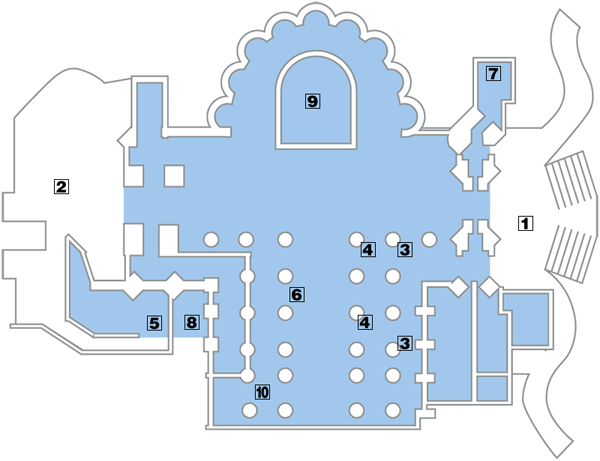
Sagrada Família Floor Plan
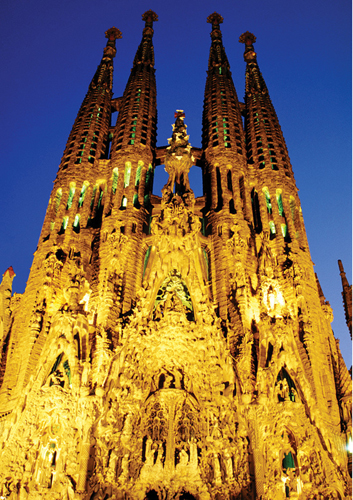
|
Try sitting in a terrace bar on nearby Avinguda Gaudí and drinking in the view of Gaudí’s masterpiece illuminated at night.
|
|
|
For the best photos, get to the
temple before 8am: the light on the Nativity Façade is excellent and the
tour buses haven’t yet arrived.
|
|
|
Look out for the cryptogram on the Passion Façade, where all the numbers add up to the age of Christ at the time of his death.
|
|
Top 10 FeaturesNativity Façade Gaudí’s
love of nature is visible in this façade. Up to a hundred plant and
animal species are sculpted into the stone, and the two main columns are
supported by turtles.
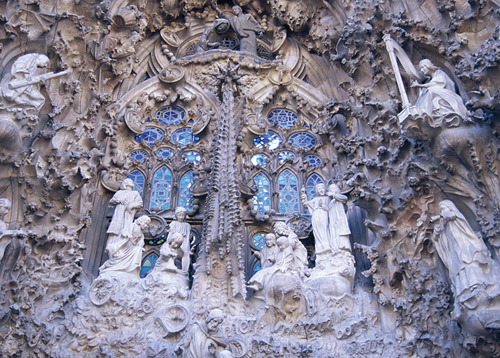
Passion Façade Started
in 1978 and completed in 2002, this façade by Josep Subirachs
represents the pain and sacrifice of Jesus. The difference between the
Gothic feel of Subirachs’ style and the intricacy of Gaudí’s original
work has not been without polemic.
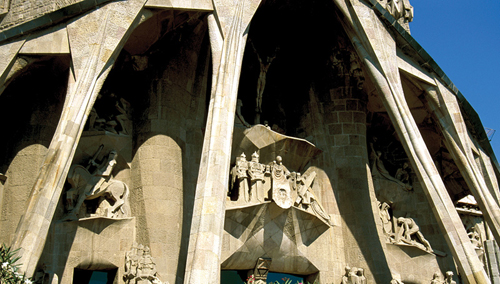
Passion Façade
Spiral Staircases These helicoidal stone stairways, which wind up the bell towers, look like snail shells. They allow access to the towers. Spires For
a close-up look at the gargoyles and mosaic tiling on the spires, scale
the bell tower stairs – or ride up in a lift. The views are equally
spectacular . Not for sufferers of vertigo.
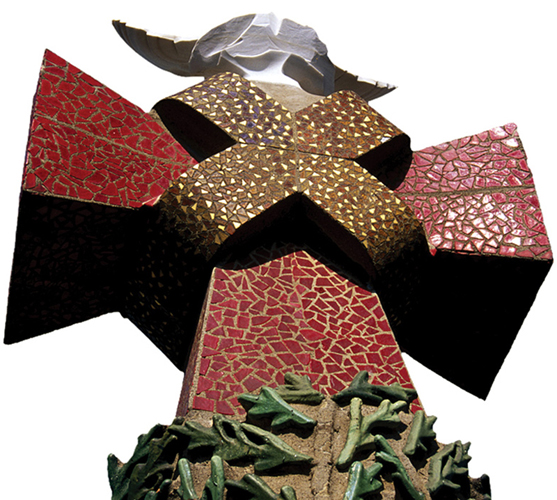
Hanging Model This
bizarre contraption in the crypt museum is testimony to Gaudí’s
ingenuity. Gaudí created this 3D construction – made of chains and small
weighted sacks of sand – as a model for the arches and vaulted ceilings
of the Colonia Güell crypt. Noone, in the history of architecture, had
ever designed a building like this. Nave The
immense central body of the temple, still in progress, is made up of
leaning, tree-like columns with branches spreading out across the
ceiling. Inspired by towering redwood trees, the overall effect is that
of a stone forest. Rosedoor Cloister In
the only cloister to be finished by Gaudí, the imagery is surprisingly
modern. Thought to be inspired by the anarchist riots that began in 1909, the devil’s temptation of man is represented by the sculpture of a serpent wound around a bomb-throwing rebel. Crypt Museum Gaudí
now lies in the crypt and his tomb is visible from the museum.
Renovated to include audio-visual exhibits, the museum offers
information about the temple’s construction. The highlight is the
maquette workshop, producing scale plaster and stone models for the
ongoing work. Apse Adorned with lizards, serpents and two gigantic snails, the apse was the first section of the temple to be completed by Gaudí. Unfinished Business The
church buzzes with activity: sculptors dangle from spires; stone masons
carve huge slabs of stone; and cranes and scaffolding litter the site.
Observing the construction in progress enables visitors to grasp the
monumental scale of the project.
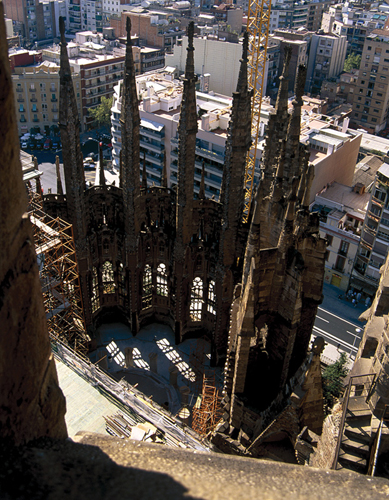
|